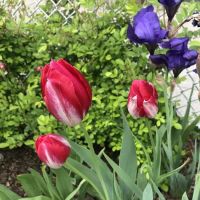Ridgewood Community Garden Introduce
For us New Yorkers, particularly those living in the dynamic neighborhoods of Brooklyn and Queens, finding green spaces is more than a luxury—it’s a necessity. Amidst the bustling cityscape, community gardens serve as invaluable sanctuaries, offering a breath of fresh air, a connection to nature, and a vibrant hub for local engagement. These spaces are where concrete meets cultivation, transforming vacant lots into flourishing ecosystems nurtured by the hands of dedicated residents. One such cherished spot that embodies this spirit is the Ridgewood Community Garden.
The Ridgewood Community Garden isn't just a collection of plants; it's a testament to the power of collective action and a living symbol of neighborhood pride. It’s a place where diverse cultures and generations come together, sharing knowledge, sowing seeds, and harvesting not only fresh produce but also lasting friendships. Often operating in partnership with programs like NYC Parks GreenThumb and supported by local community groups, these gardens are fundamental to fostering sustainability, promoting healthy living, and strengthening the social fabric of our urban communities.
For Ridgewood residents, this garden offers a peaceful respite from the daily grind, an opportunity to engage directly with the earth, and a chance to contribute to a greener, more connected neighborhood. Whether you're an experienced gardener looking for a plot, a curious local seeking a quiet spot to enjoy the outdoors, or a parent looking for a safe and educational environment for children, the Ridgewood Community Garden welcomes you. It encapsulates the very essence of urban resilience and the enduring desire for accessible green spaces that truly enrich our city lives.
The Ridgewood Community Garden is located at 61-1 Tonsor St, Ridgewood, NY 11385, USA. This address places it firmly within the Ridgewood neighborhood, an area known for its strong community bonds, historic architecture, and a unique blend of Brooklyn and Queens influences. Its placement on Tonsor Street means it's nestled in a residential part of the neighborhood, providing a convenient and accessible green space for local residents.
Ridgewood boasts excellent public transportation options, making the garden easily reachable for those relying on mass transit. The nearest subway lines are typically the L and M trains, with stations like Myrtle-Wyckoff Avenues and Seneca Avenue providing access within a reasonable walking distance or a short bus ride. The Myrtle-Wyckoff Avenues station, in particular, is a major transportation hub, offering connections that can take you across Brooklyn, into Manhattan, or deeper into Queens. Numerous local bus routes also crisscross the Ridgewood area, with stops conveniently located near Tonsor Street, further enhancing the garden's accessibility.
For those who prefer to explore on foot or by bicycle, Ridgewood is a highly walkable neighborhood, with many local shops, cafes, and amenities within easy reach. The street grid is relatively straightforward, making it pleasant to stroll around and discover the area's charm. While street parking can be a common urban challenge, the robust public transit system often makes it the most practical and stress-free way to visit the Ridgewood Community Garden. Its integration into the neighborhood fabric ensures it's a genuine local resource, easily incorporated into daily routines or weekend excursions for residents.
As a community garden, the Ridgewood Community Garden primarily functions as a shared green space and a hub for community-led activities, rather than offering commercial "services." Its core offerings are designed to foster communal engagement, urban agriculture, and environmental education. Based on typical community garden models and the spirit of such spaces, the "services" provided often include:
Allotments for Gardening: The fundamental service is providing individual or shared garden plots to community members, enabling them to grow their own vegetables, herbs, and flowers. This promotes self-sufficiency in food production and provides a hands-on connection to nature.
Shared Tools and Resources: Community gardens often maintain a communal supply of gardening tools, such as shovels, rakes, and watering cans, for members to use, reducing individual costs and promoting shared responsibility.
Composting Program: Many gardens implement a composting system, allowing residents to contribute organic waste to be processed into nutrient-rich soil for the garden. This promotes sustainable waste management and enriches the garden's soil.
Educational Workshops: The garden likely hosts workshops on various topics related to gardening, such as organic pest control, seed starting, plant care, and composting techniques. These educational sessions are often free and open to all interested community members.
Community Events and Gatherings: The garden serves as a vibrant venue for neighborhood events, including potlucks, harvest festivals, children's activities, and cultural celebrations, fostering a strong sense of community and social interaction.
Volunteer Opportunities: Individuals can volunteer their time and skills to help maintain communal areas of the garden, plant new features, or assist with events. This fosters collective ownership and provides a rewarding way to contribute to the neighborhood.
Green Space for Relaxation and Recreation: Beyond gardening, the space itself offers a tranquil environment for locals to relax, read, socialize, or simply enjoy the outdoors, serving as a vital urban amenity.
Youth Garden Plots (if applicable): Some community gardens offer dedicated plots or programs for younger gardeners, encouraging environmental education and hands-on learning for children and teenagers.
The specific activities and formal services at Ridgewood Community Garden would be managed by its dedicated garden members and often supported by the NYC Parks GreenThumb program or a local land trust, which typically provide resources and guidance.
The Ridgewood Community Garden, like many cherished green spaces in New York City, likely boasts several distinctive features and highlights that contribute to its appeal and functionality. These elements are often a testament to the creativity and dedication of its community members:
Diverse Plantings and Produce: A key highlight is the array of plants cultivated within the garden, which can include seasonal vegetables, herbs, vibrant flowers, and perhaps even fruit-bearing trees or shrubs, showcasing the diverse horticultural interests of its members.
Communal Areas for Socializing: Beyond individual plots, the garden often features designated common areas with benches, picnic tables, or open lawns, encouraging social interaction, shared meals, and community gatherings, as highlighted in a review about "always meeting new ppl here."
Sustainable Practices: Many community gardens, especially those affiliated with GreenThumb, incorporate eco-friendly features such as rainwater harvesting systems, active composting bins, and pollinator-friendly plantings, demonstrating a commitment to environmental stewardship.
Artistic and Decorative Elements: It's common to find unique artistic touches, repurposed materials, or murals within community gardens, reflecting the creative spirit of the neighborhood and adding to the garden's unique aesthetic charm.
Educational Infrastructure: There may be informational signage about plants, composting, or the garden's history, along with designated spaces for workshops and demonstrations, serving as an outdoor classroom for all ages.
Safe Play Areas (Potentially): Depending on its design and community needs, the garden might include child-friendly features like a small play area or designated space for youth gardening, making it suitable for families.
Orchard or Fruit Trees: Some community gardens, including those in the wider NYC area, have dedicated sections for fruit trees (like apples, plums, cherries) or berry bushes, providing additional harvests for members and contributing to local food security.
These features combine to make Ridgewood Community Garden a dynamic and inviting space that goes beyond simple cultivation, offering a multi-faceted experience for all who visit and participate.
As a community garden, Ridgewood Community Garden does not operate with traditional "promotions" or "special offers" in the commercial sense (e.g., sales, discounts, or loyalty programs). Its value is inherently accessible and community-focused, relying on participation, shared resources, and volunteer effort. However, the garden does offer a unique set of benefits and opportunities that can be considered invaluable "promotions" for local residents:
Free Access to Green Space: The most significant "offer" is the free and open access (during designated hours) to a beautifully maintained urban green space. This is a priceless commodity in dense New York City, providing a place for relaxation, contemplation, and connection with nature.
Affordable Gardening Plots: For those interested in cultivating their own produce, community gardens often provide plots at very low annual fees (which may include a small deposit), making gardening accessible even without private outdoor space.
Complimentary Educational Workshops: Through its affiliations with NYC Parks GreenThumb and local organizations, the garden likely hosts free workshops on gardening, composting, environmental sustainability, and healthy eating, offering valuable learning opportunities at no cost.
Free Community Events: Participation in various free community events, such as harvest festivals, potlucks, or gardening workdays, offers a unique way to engage with neighbors and enjoy local culture.
Volunteer Experience and Skill Building: The opportunity to volunteer and contribute to the garden's upkeep is a rewarding "offer," providing hands-on learning, physical activity, and a strong sense of community belonging, all at no financial cost.
Access to Fresh, Local Produce: For active garden members with plots, or during communal harvests, the "promotion" is access to fresh, organic, locally grown produce, contributing to healthy eating and reducing food expenses.
Health and Well-being Benefits: Engaging with the garden promotes physical activity, reduces stress, and fosters mental well-being—priceless benefits for urban dwellers.
To learn about specific events, plot availability, or how to get involved, the best approach is to check the NYC Parks GreenThumb website, local community board announcements, or any dedicated social media pages or bulletin boards maintained by the Ridgewood Community Garden members themselves.
As a community garden largely run by volunteers and supported by larger programs, the Ridgewood Community Garden typically does not have a direct, publicly listed phone number in the way a commercial business would. However, you can connect with the garden and its overseeing bodies through the following primary channel:
Address: 61-1 Tonsor St, Ridgewood, NY 11385, USA
For general inquiries about the Ridgewood Community Garden, how to get involved, or information on specific events and plot availability, it is best to direct questions to the organizations that support and manage community gardens in NYC:
NYC Parks GreenThumb: This program is the largest urban gardening program in the United States and provides extensive resources, guidance, and event listings for hundreds of community gardens across New York City, including those in Ridgewood. Their official website is the primary resource for general information and connecting with community garden groups.
Local Community Groups/Land Trusts: Many community gardens are also supported by local community groups or land trusts (like the Brooklyn Queens Land Trust, though Ridgewood is in Queens). Checking their websites or local community board pages might provide specific contact information for the garden group or upcoming events.
Additionally, community gardens often have an active presence on social media platforms or maintain their own informal websites/blogs, where garden members post updates, events, and volunteer opportunities. Searching for "Ridgewood Community Garden" on these platforms or through local Ridgewood community forums can often lead to more direct contact with the garden's active members or organizers, as suggested by review mentions of "meeting new ppl here."
For New Yorkers, the Ridgewood Community Garden is far more than just a plot of land; it's an incredibly suitable and vital resource that deeply enriches local life. In a city where personal green space is a luxury, this garden provides an accessible, shared oasis, offering a crucial outlet for relaxation, exercise, and a fundamental connection to nature right within our bustling borough. For residents of Ridgewood, it’s a convenient escape from the concrete, providing a place to breathe fresh air and enjoy the simple beauty of growing things without having to travel far.
Beyond its aesthetic and environmental benefits, the garden serves as a powerful catalyst for community building. As highlighted by reviews, it's a place where "always meeting new ppl here" is a natural occurrence. It brings together neighbors of all ages and backgrounds, fostering genuine connections, shared purpose, and a stronger sense of belonging. This communal aspect is invaluable in a diverse city like ours, strengthening the social fabric of Ridgewood and promoting a more integrated neighborhood.
Furthermore, the Ridgewood Community Garden acts as an informal, hands-on learning center. It offers practical knowledge about urban agriculture, composting, and sustainable living, empowering residents to cultivate their own food and contribute to local environmental health. For families, it’s an ideal setting to introduce children to the wonders of nature and the responsibilities of stewardship. In essence, the Ridgewood Community Garden is an indispensable local asset, cultivating not just plants, but also community, well-being, and a profound appreciation for green living in the heart of our urban landscape.
Ridgewood Community Garden Photos
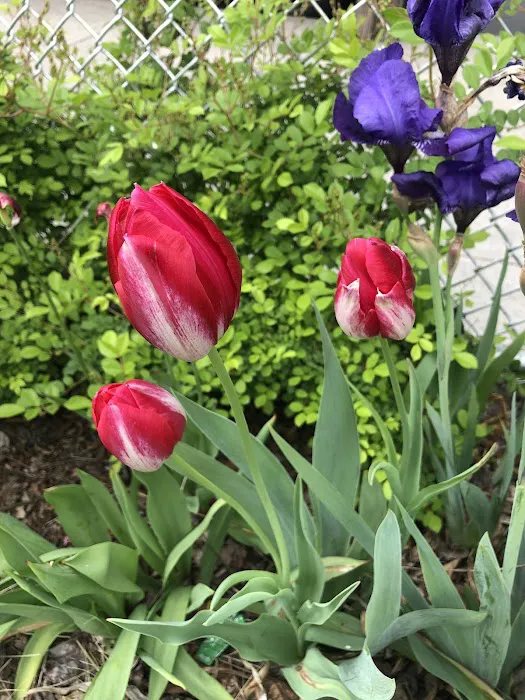
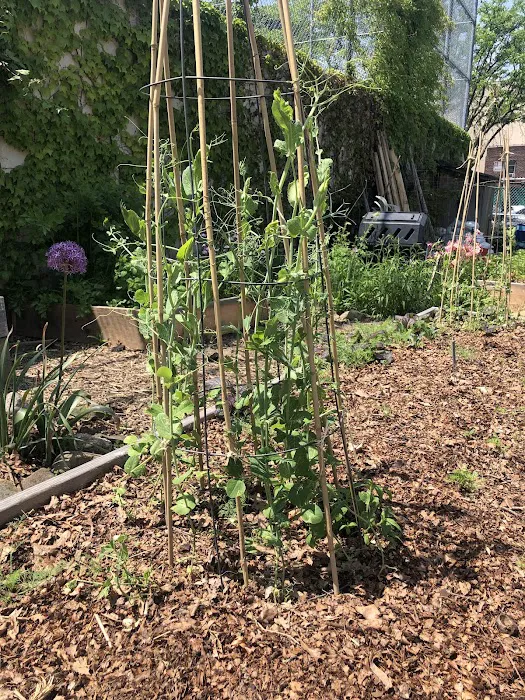
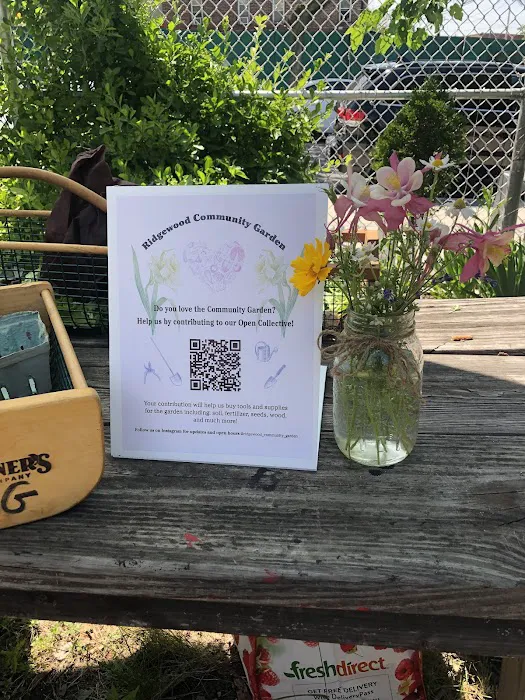
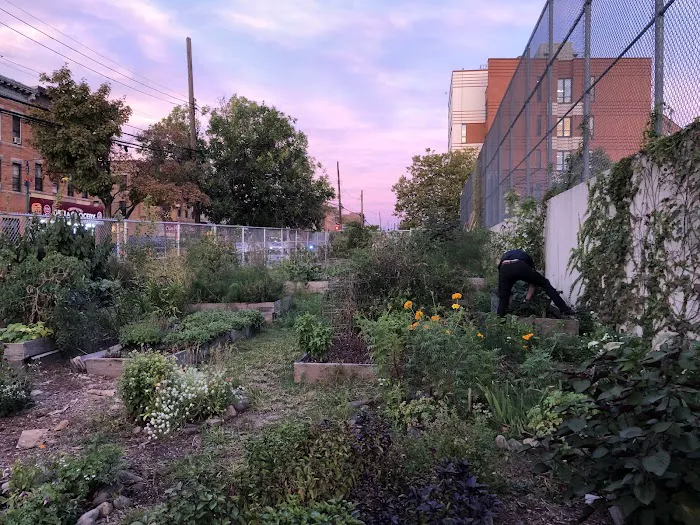
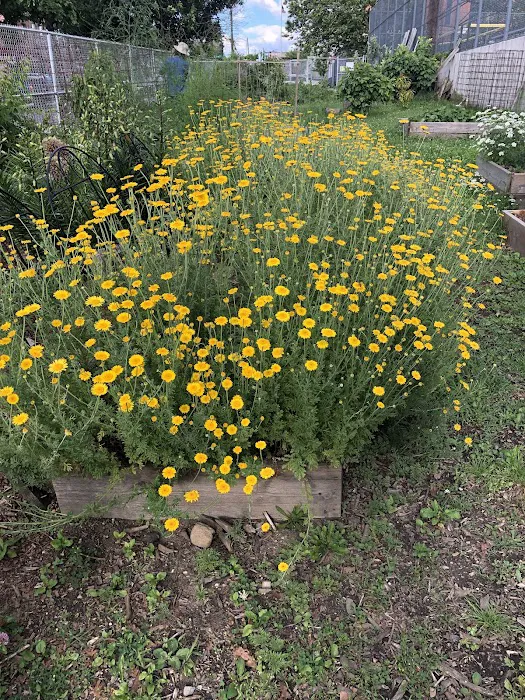
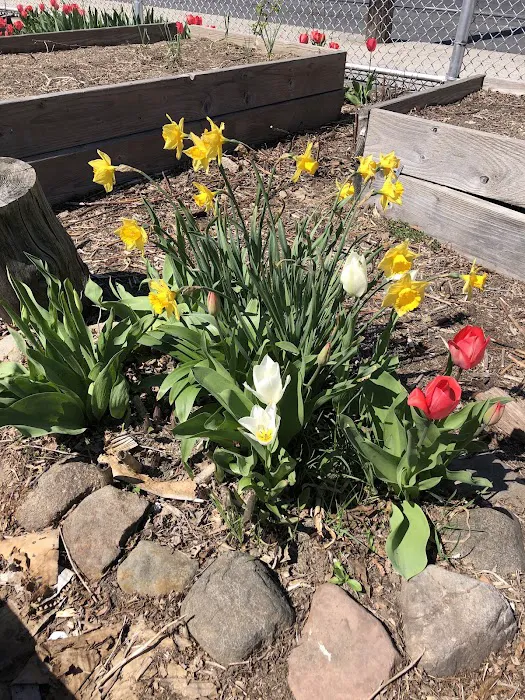
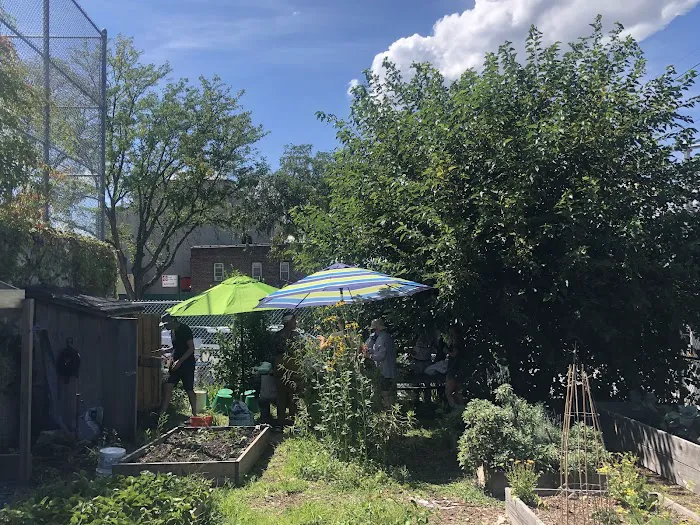
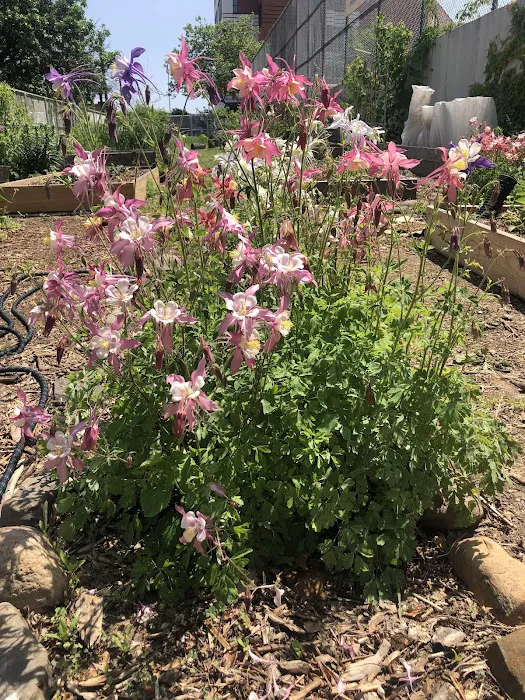
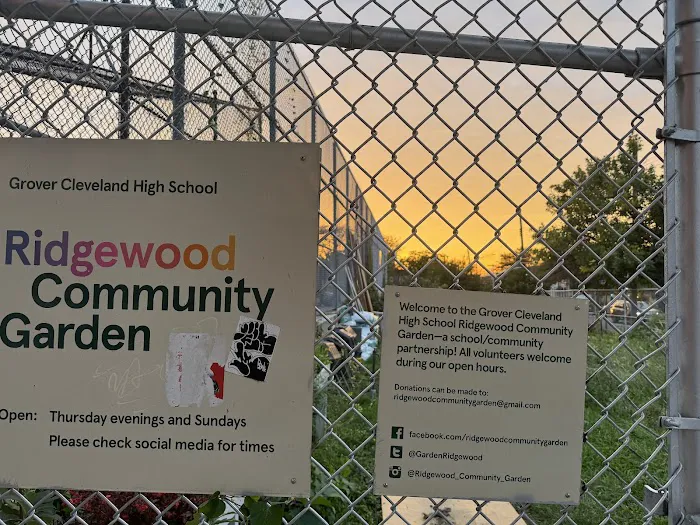
Ridgewood Community Garden Location
Ridgewood Community Garden
61-1 Tonsor St, Ridgewood, NY 11385, USA
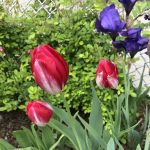 Ridgewood Community Garden
Ridgewood Community Garden61-1 Tonsor St
 Ridgewood
Ridgewood54-33 Metropolitan Ave
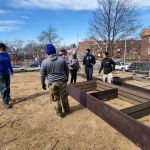 Sunset Garden
Sunset Garden18-36 Willoughby Ave
 Starr Playground
Starr Playground209 Onderdonk Ave
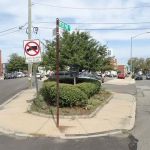 Luke J. Lang Square
Luke J. Lang Square61st St &
 Tesla Memorial Society of New York
Tesla Memorial Society of New York59-27 Woodbine St
 Motel
Motel18-19 Madison St
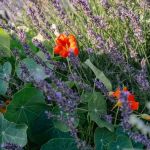 Pioneer Flora
Pioneer Flora93 Scott Ave
 布魯克林藝站 住的地方
布魯克林藝站 住的地方275 Wyckoff Ave
 Ridgewood Veterans Triangle
Ridgewood Veterans TriangleMyrtle Ave. &
 Clemens Triangle
Clemens Triangle56-3 Myrtle Ave
 Plank Road Public Shoreline
Plank Road Public Shoreline4801 58th Rd
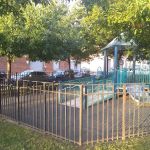 Copernicus Triangle
Copernicus Triangle55th Dr &
Ridgewood Community Garden Reviews
Great garden! Always meeting new ppl here
May 22, 2024 · Luke Raithel- Jun 23, 2023 · Conor Odell
- Mar 26, 2023 · Zach Hollander
More Scenic Spot
 Ridgewood4.0 (3 reviews)
Ridgewood4.0 (3 reviews)54-33 Metropolitan Ave, Flushing, NY 11385, USA
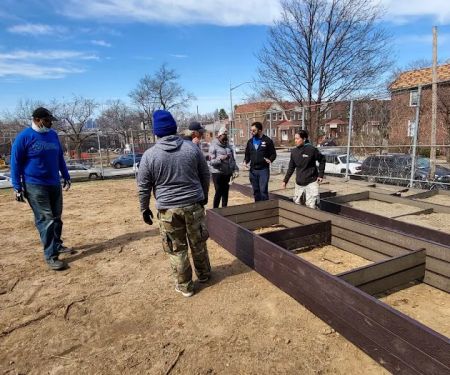 Sunset Garden4.0 (13 reviews)
Sunset Garden4.0 (13 reviews)18-36 Willoughby Ave, Ridgewood, NY 11385, USA
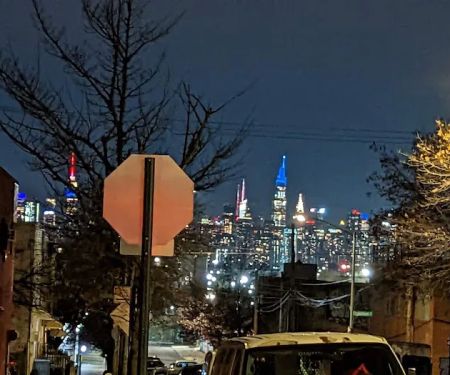 Starr Playground4.0 (96 reviews)
Starr Playground4.0 (96 reviews)209 Onderdonk Ave, Ridgewood, NY 11385, USA
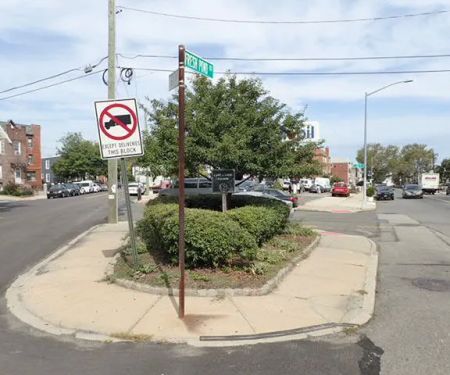 Luke J. Lang Square5.0 (1 reviews)
Luke J. Lang Square5.0 (1 reviews)61st St &, 59th Rd, Maspeth, NY 11378, USA
 Tesla Memorial Society of New York5.0 (1 reviews)
Tesla Memorial Society of New York5.0 (1 reviews)59-27 Woodbine St, Ridgewood, NY 11385, USA
 Motel0.0 (0 reviews)
Motel0.0 (0 reviews)18-19 Madison St, Flushing, NY 11385, USA
 Pioneer Flora0.0 (0 reviews)
Pioneer Flora0.0 (0 reviews)93 Scott Ave, Brooklyn, NY 11237, USA
 布魯克林藝站 住的地方4.0 (8 reviews)
布魯克林藝站 住的地方4.0 (8 reviews)275 Wyckoff Ave, Brooklyn, NY 11237, USA
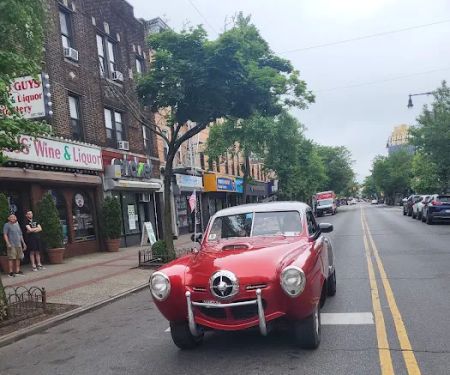 Ridgewood Veterans Triangle4.0 (3 reviews)
Ridgewood Veterans Triangle4.0 (3 reviews)Myrtle Ave. &, Cypress Ave, Ridgewood, NY 11385, USA
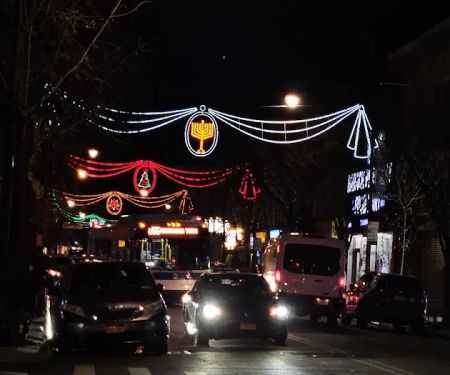 Clemens Triangle4.0 (45 reviews)
Clemens Triangle4.0 (45 reviews)56-3 Myrtle Ave, Ridgewood, NY 11385, USA
 Plank Road Public Shoreline4.0 (3 reviews)
Plank Road Public Shoreline4.0 (3 reviews)4801 58th Rd, Maspeth, NY 11378, USA
 Copernicus Triangle4.0 (6 reviews)
Copernicus Triangle4.0 (6 reviews)55th Dr &, Borden Ave, Maspeth, NY 11378, USA
Categories
Popular Camping Sites
 Coney Island Boardwalk Garden4.0 (75 reviews)
Coney Island Boardwalk Garden4.0 (75 reviews) The William Hotel Midtown, Sonder4.0 (555 reviews)
The William Hotel Midtown, Sonder4.0 (555 reviews) Shepard Lake Recreation Area0.0 (0 reviews)
Shepard Lake Recreation Area0.0 (0 reviews)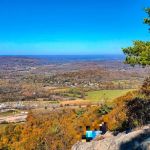 Stairway To Heaven4.0 (185 reviews)
Stairway To Heaven4.0 (185 reviews)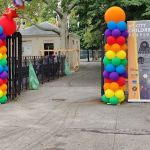 Howard Bennett Playground4.0 (152 reviews)
Howard Bennett Playground4.0 (152 reviews) Isle of Meadows4.0 (10 reviews)
Isle of Meadows4.0 (10 reviews)Must-Read Camping Blog Posts
Most Searched Camping Sites
Trending Camping Blog Posts
 Top Group Travel Destinations in Europe: Best Places for Group Vacations
Top Group Travel Destinations in Europe: Best Places for Group Vacations How to Get Involved in Travel Clans for Social Travel: Explore Group Travel Opportunities
How to Get Involved in Travel Clans for Social Travel: Explore Group Travel Opportunities Best Travel Clans for Sustainable Travel
Best Travel Clans for Sustainable Travel Travel Clans for Solo Travelers Looking for Company: Join Unique Travel Communities
Travel Clans for Solo Travelers Looking for Company: Join Unique Travel Communities Best Group Vacation Destinations for Friends: Ultimate Travel Ideas
Best Group Vacation Destinations for Friends: Ultimate Travel Ideas Best Travel Clans for Women Traveling Together
Best Travel Clans for Women Traveling Together 
